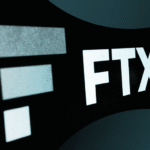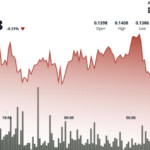Members of the US Senate Banking Committee are poised to vote on significant legislation aimed at establishing a clear framework for digital asset market structure, with a focus on addressing various fraud-related issues, particularly those involving cryptocurrency ATMs. Wyoming Senator Cynthia Lummis, a key proponent of the bill, recently highlighted the pressing need to tackle instances of fraud associated with Bitcoin ATMs.
In a post on social media platform X, Lummis pointed to a concerning report from the Cheyenne police department, which documented 50 cases of fraud linked to crypto ATMs, affecting mostly senior citizens and leading to losses surpassing $645,000. As of now, the federal government has yet to pass specific legislation that targets fraudulent activities related directly to these machines. According to the FBI, around 11,000 reports of fraud at crypto kiosks have been filed in 2024 alone, resulting in losses exceeding $246 million.
Lummis, who is part of the majority party on the Senate Banking Committee, expressed optimism that the forthcoming bill could pave the way for a robust regulatory landscape for cryptocurrency companies in the country, with aspirations for the legislation to be enacted by 2026. The House of Representatives previously passed its own market structure legislation—the CLARITY Act—in July, although the bill’s final draft notably lacks specific provisions regarding ATMs and kiosks.
This lack of reference to cryptocurrency kiosks exists in the latest draft bill put forth by Republican leadership, further underscoring the evolving nature of legislative efforts in this area. The anticipation surrounding updates to market structure has heightened since the passage of the CLARITY Act, prompting engagements between lawmakers and industry stakeholders to discuss legislative priorities, including a proposed bill for the US government to maintain a national crypto reserve consisting of up to 1 million Bitcoin.
As discussions continue, Lummis’s remarks suggest that the Senate’s version of the market structure bill remains adaptable. This comes in the wake of House Republicans voting to retroactively include a ban on central bank digital currencies (CBDCs) in the CLARITY Act, although the final content of the Senate bill remains uncertain.
Earlier initiatives have also sought to address crypto ATM fraud, with Illinois Senator Dick Durbin introducing the Crypto ATM Fraud Prevention Act in February. This bill called for operators to provide warnings to consumers about possible scams and to take preventative measures at their machines, yet it did not advance beyond the Senate Banking Committee.
In the absence of comprehensive federal legislation, various state and local governments have undertaken their own measures to combat crypto ATM fraud. Cities like Stillwater, Minnesota, and Spokane, Washington, have enacted outright bans on crypto kiosks, while Grosse Pointe Farms, Michigan, implemented a $1,000 daily transaction limit on kiosks despite the absence of any in the area at the time.
As of August, 13 states have enacted laws restricting crypto ATM activities, which include stipulations for daily transaction limits, refund processes for victims of fraud, and mandates for visible warnings on the kiosks themselves. This piecemeal approach highlights the urgent need for a cohesive regulatory framework at the federal level to address the increasing incidence of fraud in the rapidly evolving landscape of digital assets.







